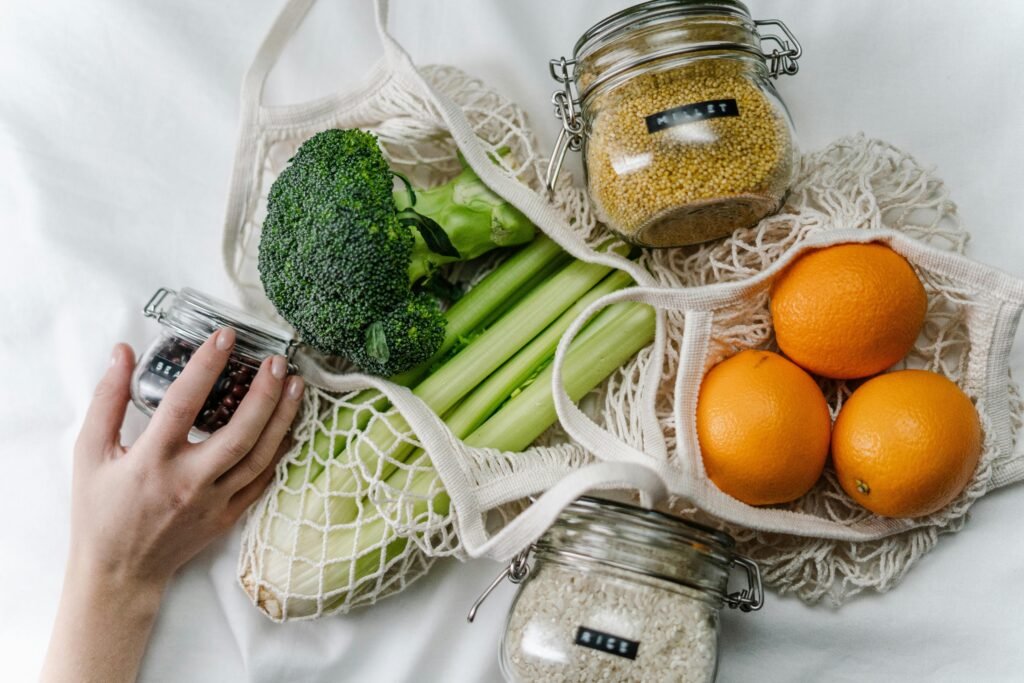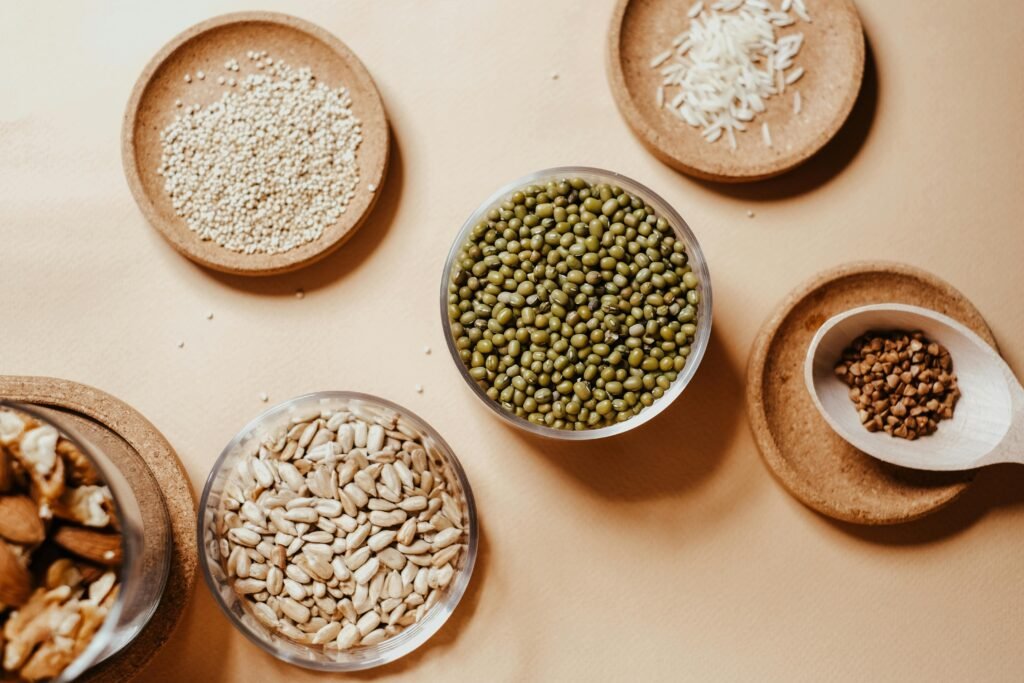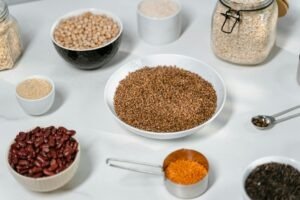
Many people think that eating plant-based is about restriction, but we couldn’t disagree more. In fact, we’ve experienced more abundance, more flavor, and better health, and we want to help others achieve the same.
Through reflecting on our own journeys, we crafted these 7 simple tips to help you get started with your plant-based lifestyle:
1. Change how you think about it
Instead of reminiscing about your old diet, try focusing on all that you’re gaining by going plant-based: delicious food, vibrant health, and perhaps easier weight management and more confidence. This is your chance to explore new flavors and try foods you may have never considered before. Think of it as an adventure! Trust us, your world will be opened, and you’ll discover so many new recipes you’ll love.
Remember: Your mindset sets the tone for your experience. And when you realize that you don’t have to give up your favorite foods (because there’s plant-based version out there that’s healthier and equally satisfying), it makes things easier.
2. Connect to your “why”
Health is a powerful motivator, but for many of us it is not the only one. A lot of people feel encouraged when they realize their food choices can also reduce harm to animals and lighten their impact on the planet. When you understand that your meals reflect more than just nutrition, it deepens your sense of purpose. You are not just eating differently; you are living in alignment with your values.
If this is something that resonates with you, spend a little time learning more. You could start with documentaries such as Forks Over Knives or The Game Changers, or even the beautifully filmed Gunda. You might also enjoy following vegan creators on YouTube who talk openly about animal agriculture and the rewards of plant-based living. And if you like digging into books, look at the work of doctors like Michael Greger, Neal Barnard, Caldwell Esselstyn, or Dean Ornish. Each one approaches plant-based health from a slightly different angle, and together they paint a powerful picture of what is possible. The more you explore, the stronger your “why” becomes.
3. Start with just a few recipes
Scrolling through hundreds of plant-based recipes can feel overwhelming. Instead, choose two or three meals that look delicious and commit to making them. Once they become part of your routine, add more. Building a small repertoire of favorites makes the transition easier and more enjoyable.
It’s also completely fine to lean on vegan comfort foods in the beginning. Moving toward a primarily whole foods diet may take more time, experimentation, and taste-testing. The key is to keep a pace that feels sustainable, so you stay on the path toward a nourishing, whole-foods lifestyle.
4. Start moving toward whole foods
Not all vegan food is automatically healthy. Potato chips and soda may be plant-based, but they might not help you feel your best long-term. Begin shifting your meals toward whole foods like vegetables, fruits, beans, whole grains, nuts, and seeds, and try to minimize heavily processed items when you can. Look for recipes that call for whole foods for sauces and desserts as well, that way they’re both delicious and nutritious.
Think of it as progress, not perfection. Each time you choose a whole food option, you’re giving your body more of the nutrients it needs. As Dr. Michael Greger explains: “Nothing bad added, nothing good taken away.”
5. Stock your kitchen with staples
The transition to a whole foods diet may go smoother if you start building a whole food, plant-based pantry now. During those times when you have no clue what to cook, you can usually create a meal out of the things in your pantry and freezer.
Keep your pantry stocked with beans, lentils, brown rice, oats, quinoa, nuts, seeds, spices, vegetable broth, and canned tomatoes. Frozen fruits and vegetables are lifesavers too. With these basics, you can throw together quick, nourishing meals anytime.

6. Keep simple snacks ready
Finding healthy whole foods, plant-based snacks is not as tough as it sounds. This will save you when you are out of the house and tempted to buy junk food. Or even at home, when hunger strikes and you just need something quick.
Here’s a list of some very minimally processed snack options we love:
- Nuts: roasted almonds, pistachios, peanuts, or cashews
- Nut butter with celery, apples, or whole-grain crackers
- Roasted chickpeas
- Homemade sweep potato fries
- Kale chips
- Hummus with raw veggies or whole-wheat pita chips
- Fruit smoothies
- Fruit such as bananas, berries of any type, grapes, or fruit salad
- Dairy-free yogurt
- Popcorn
- Baked tortilla chips and salsa
- Homemade granola bars
- High protein snack bars (such as Aloha Bars)
7. Give yourself grace
This is a lifestyle shift, not a crash diet. You don’t have to be perfect at all. For every plant-based meal you choose, it’s a win for your body, for animals, and for the planet.
Some days will feel easy, while others may be a challenge. That’s normal. What matters is showing up again and again, even if it’s imperfect. Celebrate the steps you’re taking and trust that, over time, they add up to big change.
Progress, not perfection, is what creates lasting results.
Ready to choose a few recipes?
We hope you find our tips useful as you begin your plant-based journey! Check out our free whole food plant-based recipes: they’re nourishing and macro-friendly for women in peri- and post menopause.




